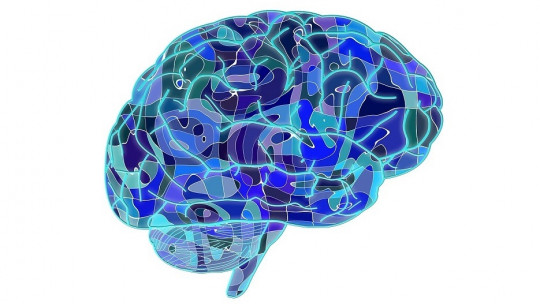Do you want to memorize a syllabus but feel like it’s too much? Enter and discover the most important tips to memorize better and some techniques to do so.

We have all been in the situation of having to memorize a large amount of syllabus for an exam, for a presentation, etc. and feel like it’s too much information. In fact, throughout the day we are exposed to a large amount of stimuli that our brain decides not to store in our memory in order not to overload us. However, on many occasions, we are faced with a large agenda that we must memorize and we see that it is insufficient just by reading it once. This is when we blame ourselves and tell ourselves that we have a memory like a fish, but really the problem is that we don’t have the skills. appropriate techniques and strategies to memorize in an efficient way.
If you are here it is because you are worried about an exam and you are looking for tricks to memorize quickly If you think you have bad memory and you don’t see yourself able to study for that exam, keep reading this article and discover tips and techniques to memorize faster
What is memory and what are the phases of memorization? Memorization phases:
The memory It is a cognitive process (just like perception, attention, etc.) through which we acquire, store and retrieve information. This process not only intervenes in learning but also allows us to know who we are, our past, how we feel, etc. Just as it is selective, it allows us to forget what, for some reason, causes us pain or is of no use to us. Therefore, it is not something that works independently, but is closely linked to other cognitive functions.
There are many types of memory that intervene in different processes, but when what we want is to memorize a specific syllabus, the memory that intervenes is called explicit memory and, more specifically, in the long term memory
Memorization phases:
The memory Long-term, unlike short-term, has unlimited capacity. You may wonder, if my long-term memory has this capacity, why am I not able to remember the notes for my exam? This is because although it is unlimited and we have the information stored in our memory, it does not mean that we can recover it. In fact, the memorization process consists of different phases:
- Coding: The first phase of the memorization It involves attending to those stimuli that need to be stored by our memory. If we do not pay attention, it is impossible for any syllabus to pass this process barrier.
- Storage: In this phase, all the means (schemes, summaries, etc.) that we have used to be able to retain information
- Recovery: This last phase is the crucial one since if we cannot access the information we have stored it is as if it did not exist in our memory Perhaps you are familiar with having spent a lot of time reading and reading a syllabus and arriving at the exam and not remembering it. That’s because even though the information is in your memory, you can’t retrieve it.
Below, we give you a series of tips for storing information memorize faster and be able to recover it in the exam.
How to memorize better? Tips
As the memory It is not an isolated process and different factors influence it, there are different aspects proven by science that must be taken into account if you want to memorize faster:
- Take care of your emotions: It is scientifically proven that emotions influence the learning process. In fact, it is confirmed that memory does not process all stimuli in the same way. The ones that stick the most and can be recovered by our brain are those that seem interesting and new to us. Therefore, if what you study seems boring, annoying, etc. It will be even more difficult for you to retain it in your mind. The solution? Find a way to enjoy what you are learning, whether by drawing the content, making diagrams, etc. The goal is to make the process as fun and interesting as possible.
- Organize the information from the general to the most specific: Sometimes so much information and so much detail can make you overwhelmed and not know where to start. Sometimes it is useful to take a complete overview of all the information or, if there is a lot of agenda, a topic, organize the general information by sections and then add more specific details to each section. In this way, you will better understand the information since it allows you to divide it into different parts and have a mental organization of how the content is structured.
- Understand what you study: Repeating and repeating something that you do not understand perhaps involves more time and more effort than trying to understand what you read. Understanding is a fundamental aspect to be able to memorize faster since we can modify the information with our own words and, in addition, it allows us to retain much more topic This does not mean that repetition is not a good strategy, but that repeating without understanding can be ineffective and frustrating.
- Don’t just read: Many people make the great mistake of trying memorize fast reading only the syllabus over and over again. Although it may be the quickest thing to do, it may cost you a lot on the exam. recover what you have studied The reason? The possibilities of recover the information because if we only read (or if we only study through a single way), the only way to retrieve the information will be one. It is scientifically proven that the more ways we use (reading, listening, writing, drawing, etc.), the more likely we are to remember the information because if we don’t remember it through one way, we will always have another to remember. On the other hand, it has also been found that active strategies (writing, explaining, drawing, etc.) help retain information better than strategies that are passive like reading or listening.
- Explain to someone else (or to yourself) what you have learned: Exposing ourselves to explaining the syllabus to someone, whether it be to ourselves or to another person, helps us know what we have really understood and what we have not. In addition, it allows adding another way for memorization, specifically, auditory. In relation to this aspect, it has been shown that explaining while walking or making movements with your hands helps better retain the information since it would also be accompanied by other motor elements that would allow the information to be remembered.

- Find the right place: Concentration and attention are essential to be able to study better, that is why it is important that you find a place where light, space, temperature and ventilation are adequate. Avoid having stimuli that distract you, such as a cell phone, a screen with a video game, etc. In this sense, it is important to set aside these elements and take breaks (specifying the time) that allow you to disconnect and reward yourself for studying.
- Sleep, exercise and eat healthy: Sleep, exercise and eating well are essential elements to be able to memorize in the long term, given that memory It is not a process independent of the rest of the body. For example, it is known that sleep has a direct impact on memory and learning. In fact, scientific studies confirm that sleep allows us to fix the information that we have stored during the day in our memory.
Techniques to memorize:
There’s a lot memorization techniques However, not all of them are useful for all people or all content. If, for example, it is not easy for us memorize numbers, it is not useful that we use a mnemonic technique that involves numbers, just as we must take into account the type of content we want memorize Some of the techniques to memorize are:
- Mnemonic rules: There are many mnemonic rules that involve creating rhymes, etc. An example is the method of places, which consists of associating the information we want to remember with that of a place (such as our house, a road, etc.) so that we go around that place associating the information.
- Diagrams, mind maps and summaries: They are the most conventional but no less effective. The important thing to keep in mind is to be able to synthesize the information in our own way, that is, to allow us to really remember the information. Perhaps studying information directly from a book seems overwhelming to you so you are study techniques they can help you memorize faster and better
- Memory cards: Flash cards are a visual technique that consists of dividing information into different parts, which makes it easier to remember. Additionally, you can add different images, colors, text, etc. that can help you make studying more like a game, in fact, currently there are applications to make memory cards in an easier way.
There are many ways to improve our way of studying, the most important question is knowing which one best suits us. If you think you need specific help to improve your academic results or you think you have any difficulty that is influencing your learning, do not hesitate to contact a professional so they can help you in this process.








